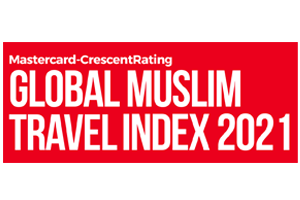DINARSTANDARD Partner Reem El Shafaki, highlighted several critical signals of opportunity identified in the State of the Global Islamic Economy Report 2023-24, focusing on tourism. One of the opportunities identified is in health and wellness tourism.
“Health and wellness tourism is a thriving sub-sector, poised for continued growth. Remarkably, it’s not just hospitals and medical spas in the limelight; hotels are now stepping into the healthcare arena, offering services like IV drips and stem-cell therapies.
“Alongside this, emotional and mental health retreats are experiencing a surge, reflecting an evolving consciousness around mental well-being. Industry players should seize this opportunity by customising offerings for Muslim travellers. They may consider, for example, wellness rooted in Prophetic traditions and infusing spirituality into emotional health retreats.
” According to the report, another critical opportunity in the tourism industry is bleisure tourism, seamlessly blending work and leisure for a fulfilling travel experience. Reem said the post-Covid-19 era has normalised remote work, catalysing this bleisure tourism surge. This trend involves employees and business owners combining business trips with leisure activities. Travellers are increasingly extending their stays to enjoy tourist attractions or working remotely from picturesque locations while balancing work and leisure. This shift reflects the growing importance of work-life balance in modern travel preferences.
“Accommodating the needs of business travellers who blend work and leisure is pivotal. Hotels and travel agencies must adapt to this evolving trend.”
TOURISM REVOLUTION DRIVEN BY AI
The State of the Global Islamic Economy Report 2023-24 also highlights a promising trend in Artificial Intelligence (AI) in tourism.
“AI is revolutionising travel across multiple fronts, from virtual assistants providing personalised recommendations to executing data-driven target marketing campaigns. AI-driven pricing strategies, predictive analytics, and data-driven insights transform travel businesses’ operations.
“AI’s data-driven approach also allows for sentiment analysis on customer reviews to identify improvement areas and expedite visa processing for smoother travel experiences. Travel businesses should prioritise AI integration across the travel value chain, encompassing areas such as customer service, product development, marketing campaigns, and operations,” said Reem.
OPPORTUNITIES FOR COUNTRIES WITH RICH ISLAMIC TRADITIONS
Reem stated that spiritual retreats were on the rise. More and more companies have started to organise spiritually-focused retreats for Muslims keen to experience a tourism destination while increasing their spirituality. Travel companies have an opportunity to concentrate on and scale this product offering to meet the growing demand.
“For example, The Productive Muslim and HalalTrip organise annual spiritual retreats that combine spirituality with the cultivation of productive habits. Another growing trend in the Islamic economy space involves businesses choosing to host their corporate retreats in countries with rich Islamic traditions like Turkiye, Morocco, and Jordan. These retreats often integrate spiritual elements and visits to heritage sites.”
She highlighted that Saudi Arabia strategically channels investments into its tourism sector, emphasising luxury, adventure, and heritage tourism. The government’s proactive initiatives are drawing increased involvement from the private sector, thereby reshaping the global tourism landscape.
“Notably, the Public Investment Fund (PIF) has established Asfar, a tourism investment company, to encourage private sector participation in the country’s tourism endeavours. This move creates co-investment opportunities and invites private sector collaboration, making Saudi Arabia an attractive destination for both travellers and investors in the coming years.”






